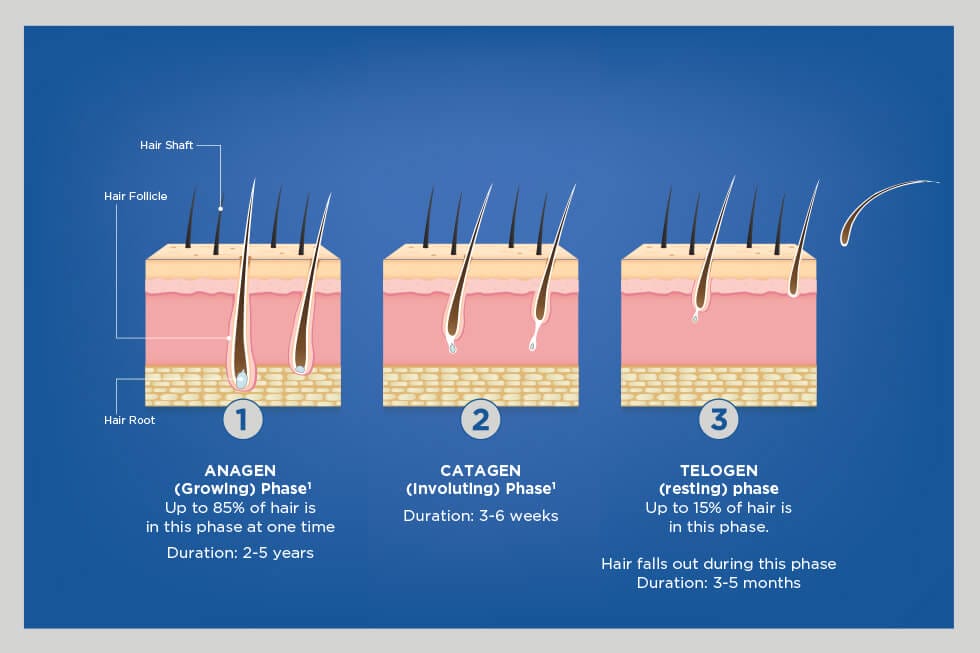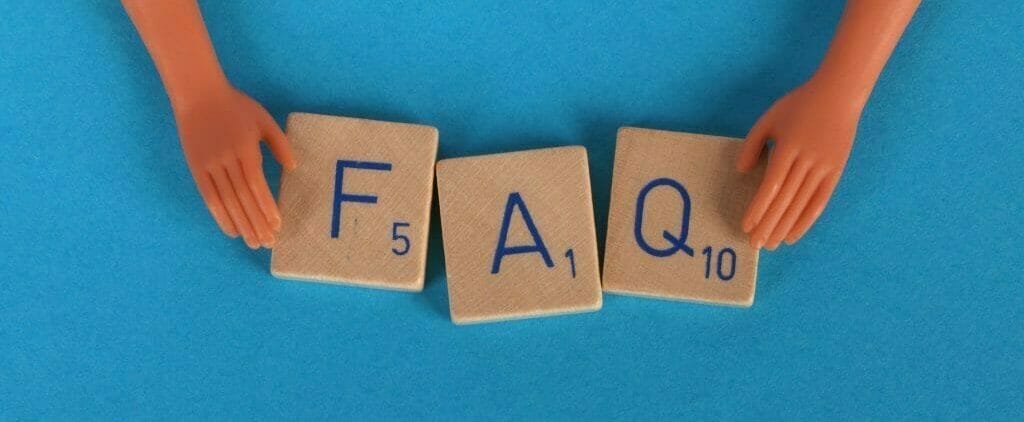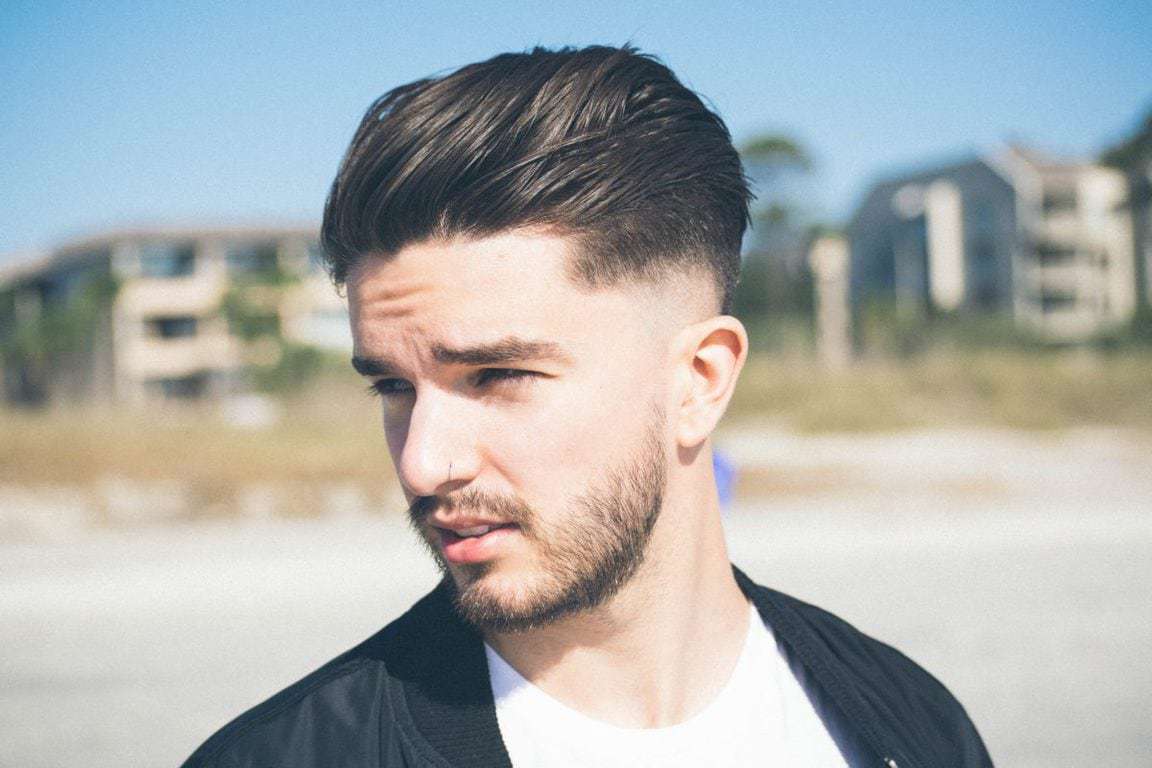How To Stop And Reduce Hair Loss for Men [Part 1]
Who has not had a hair loss scare? All of us, sooner or later, start to worry that we might be losing too much hair. While most of the moment, it is only a false alarm, and it is possibly just our hair’s routine shedding, in some cases, it’s more than that. However, what could be causing the sudden hair loss? In case you’ve been experiencing baldness and have reason to believe that it is not just your shedding habit, the first thing to do is to consult your doctor. In the following article by Tropika Club, we’ll discuss the phases of hair growth, causes of hair fall, and how you can reduce it obviously.
Table of Contents
No Time to Read? Here’s a Snappy Summary of This Article
- Hair Growth Cycle and Causes of Hair Loss
- Hair Care Routine Changes
- Exercise and Stress Management
- Professional Treatments

What are the stages of Hair Growth?
Have you ever wondered why your hair does not grow past one stage, however much you attempt? That is because, contrary to popular belief, your hair has a life cycle of 2-6 years, and it drops out. And a new hair grows in its place, just like how plants grow in nature. There is a hair growth cycle that you need to first know of.
- Anagen Stage 1 – This is the stage where the hair grows out from the follicles, and the shaft is always constructed, increasing the amount of your hair. This stage will last for 2-6 years.
- Catagen Stage 2 – Within this phase, your own hair prepares to enter resting. This stage can last for approximately 2 weeks.
- Telogen Stage 3 – The final phase is the resting stage in which the hair stops growing and eventually falls out to allow new hair replace it. This phase lasts for approximately 5-6 weeks.
- Neogen And Exogen Stage 4 – Neogen is the regeneration stage of a hair follicle, where a brand new follicle develops in place of their old one. Exogen is the releasing of the old anagen.
About 10-20% of your hair is always in the resting phase at any particular time. Baldness happens when your hair falls out without finishing this three-stage cycle. The hair loss becomes permanent when the follicle stops producing hair, resulting in balding. There are two types of hair fall that can lead to balding. Continue reading to find out what they’re.
![How To Stop And Reduce Hair Loss for Men [Part 1]](https://ejqczs4xhji.exactdn.com/wp-content/uploads/2023/05/0298707c437ee41397cf4742ca862d28.jpg?strip=all&lossy=1&resize=1100%2C734&ssl=1)
What are the Types Of Hair Loss
Pattern 1: Telogen Effluvium
In case you have been experiencing loss of hair from all over your scalp and body, it is likely that you’ve got Telogen Effluvium. Telogen Effluvium occurs when more than 20% of your follicles abruptly go into the telogen phase, decreasing the number of follicles which are actively growing hair (3). This results in the loss of volume and, eventually, balding. Telogen Effluvium is mostly induced by certain triggers. .
- Health triggers: Malaria, typhoid, tuberculosis, thyroid issues, malnutrition, syphilis, autoimmune diseases, and nutrient deficiencies.
- Stress Triggers: Emotional trauma, heavy labour, starvation, crash diets, serious injuries, and surgeries.
- Drug Triggers: Oral retinoids, oral contraceptives, anti-thyroid drugs, anticonvulsants, beta-blockers, amphetamines, Captopril, and heavy metals.
- Local Triggers: Hair dye allergies
Read Also:
Expert Tips for Beautiful Long Asian Hair
_
Pattern 2: Alopecia
Hair loss can take several forms, which range from loss in well-defined patches to diffuse or complete hair loss, which may affect all hair-bearing websites. This is called hereditary or alopecia hair loss. In androgenic alopecia, the hair starts to drop off if testosterone (the male sex hormone) is converted into dihydrotestosterone and starts to attack the hair follicles, making them worthless and curbing hair growth. Female pattern hair loss is strikingly different from male pattern baldness. The primary symptoms of female pattern baldness include the following:
Hair thinning in female pattern baldness is observed mainly on the top and the crown area. Balding starts with the widening of the centre hair part. The front hairline stays untouched in most patients. The hair loss may be intense, but it doesn’t cause complete or near total baldness, as it does in men. More hair loss observed during showers and while cleansing your hair.
The source of hair fall vary from person to person. While in some circumstances, external factors may be responsible, some serious medical conditions, lack of nourishment, and heredity are also major causes of hair loss in many patients. The top factors Which May cause premature hair loss in women are:
- Hair thinning in female pattern baldness is observed mainly on the top and the crown area. Balding starts with the widening of the centre hair part.
- The front hairline remains unaffected in most patients.
- The hair loss may be acute, but it does not lead to complete or near total baldness, as it does in men.
- More hair loss observed during showers and while brushing your hair.
![How To Stop And Reduce Hair Loss for Men [Part 1]](https://ejqczs4xhji.exactdn.com/wp-content/uploads/2020/03/shutterstock_282585092-1024x683.jpg?strip=all&lossy=1&ssl=1)
What are the Main Causes of Hair Fall
Physical And Emotional Stress – Persistent illness, drastic and excessive weight loss and intense physical labour can get the body to get drained and dried. This will make the hair follicles undernourished and weak and might cause rapid baldness.
Hereditary Factors – Hereditary baldness is known as alopecia. Though this is more evident in men, girls, too, will likely create genetically inherited alopecia. There are a variety of forms of alopecia, such as hepatitis alopecia, traction alopecia, etc..
Hormonal Changes – Hormonal changes in the body increase the sensitivity of hair follicles, weaken hair follicles, and cause extra hair fall. Menopause, ovarian cyst, hypothyroidism, hyperthyroidism, etc. cause changes within your own body’s hormonal balance, which might finally result in hair loss.
Scalp Infection – Fungal, bacterial, and viral diseases such as seborrheic dermatitis and psoriasis in the scalp may weaken the roots and damage hair follicles, thereby causing breakage, thinning, and hair fall.
Pregnancy – The majority of women experience frequent dehydration, fatigue, and hormonal imbalance during and post-pregnancy. This causes enhanced sensitivity within the hair follicles. Additionally, it creates unfavourable scalp ailments. Each of these factors together may result in chronic hair fall.
Alopecia Areata – Alopecia Areata is an autoimmune disorder where the immune system errors hair to get a foreign contaminant and starts attacking the hair follicles, causing hair loss. There is no cure for this illness.
Medication And Treatments – Certain medical conditions involve surgeries and treatments that help to cure the ailment. While these cure your situation, the unwanted effects of the treatments can often damage the hair follicles and cause rapid hair fall. Medications such as chemotherapy, steroids, and drugs for heart problems, heart diseases, depression, etc. can cause extreme baldness.
Thyroid Disorders – Anti-thyroid medication virtually always result in hair loss. The hair appears thin, and the baldness is dispersed all over the scalp. Successful treatment often results in the hair return, but sometimes, the hair loss is permanent.
Over Supplementation – Over supplementation of a few nutrients, such as vitamin A, vitamin E, and selenium, has been discovered to induce baldness, among other dangers (10). Most hair supplements include these nutrients, although deficiencies in vitamin A and selenium have not been linked to hair loss. Instead of taking vitamins in their concentrated form as nutritional supplements, it is better to choose them out of fruits and other organic foods.
Heavy or Over-styling – Heavy use of hair products and hair accessories may lead to hair loss. Some hair products, like sulfate lauryl shampoos and hair sprays, are all known to contain chemicals that aren’t good for your scalp and hair. Hair accessories (like elastic bands) are proven to pull on the hair. These may cause your hair to fall out. Hairstyles that require the hair to be pulled tight like a tight braid or ponytail may also trigger hair fall.
We know that dealing with baldness can be overwhelming, but there are things you can do to curb the problem. Read our part II to find out what you can do to stop hair loss, and even regrow your lost hair.
Conclusion
Hair loss can be a distressing problem for many men, but it doesn’t have to be. There are many factors that can affect your hair growth and health, and by understanding them, you can take steps to prevent or reduce hair fall. In this article, we have explained how your hair grows in different phases and what can cause it to fall out. We have also given you some tips on how to improve your hair care routine, manage your stress levels, and choose the right products for your hair type. By following these simple suggestions, you can keep your hair strong and healthy for longer.
However, if you are still experiencing excessive hair loss or thinning, you may want to consult a professional for more advanced treatments. There are many options available today that can help you restore your hair and confidence, such as hair transplantation, laser therapy, microneedling, and PRP injections. These treatments are safe and effective, but they require proper consultation and evaluation before you decide to go for them. You can find out more about these treatments in our next article, How To Stop And Reduce Hair Loss [Part 2].
At Tropika Club Magazine, we care about your hair and beauty needs. That’s why we offer you the best deals and discounts on various hair services and products in Singapore. Whether you need a haircut, a hair spa, a hair dye, or a hair treatment, you can find it on our website at an affordable price. You can also browse through our articles and reviews to get more tips and insights on how to take care of your hair and scalp. So don’t wait any longer and visit Tropika Club Magazine today to discover the best hair solutions for you!

Frequently Asked Questions (FAQ)
Q: How common is hair loss in men?
A: Hair loss is a very common problem that affects about 50% of men by the age of 50. Some men may experience hair loss as early as their 20s or 30s. Hair loss can have a negative impact on self-esteem, confidence, and social life.
Q: What are the types of hair loss in men?
A: There are different types of hair loss in men, such as:
- Androgenetic alopecia: This is the most common type of hair loss, also known as male pattern baldness. It is caused by genetic factors and hormonal changes that affect the hair follicles. It usually starts with a receding hairline and thinning of the crown, and can progress to complete baldness over time.
- Telogen effluvium: This is a temporary type of hair loss that occurs when the hair follicles enter a resting phase prematurely due to stress, illness, medication, or other factors. It causes diffuse shedding of hair all over the scalp, but usually resolves within a few months.
- Alopecia areata: This is an autoimmune condition that causes patchy hair loss on the scalp or other parts of the body. It occurs when the immune system attacks the hair follicles, causing inflammation and hair fall. The cause of alopecia areata is unknown, but it may be triggered by genetic or environmental factors. It can affect anyone at any age, and may recur or resolve spontaneously.
- Traction alopecia: This is a type of hair loss that occurs due to excessive pulling or tension on the hair, such as from tight hairstyles, braids, ponytails, or extensions. It can cause damage to the hair follicles and lead to permanent hair loss if not treated early.
Q: How can I prevent or reduce hair loss?
A: There are many ways to prevent or reduce hair loss, depending on the cause and severity of your condition. Some general tips include:
- Improving your hair care routine: Use a gentle shampoo and conditioner that suit your hair type and scalp condition. Avoid harsh chemicals, heat styling, and frequent washing that can damage your hair. Use a wide-tooth comb to detangle your hair and avoid pulling or tugging on your hair. Massage your scalp regularly with natural oils or masks to stimulate blood circulation and nourish your hair follicles.
- Managing your stress levels: Stress can trigger or worsen hair loss by affecting your hormones, immune system, and blood flow. Try to reduce stress by practicing yoga, meditation, breathing exercises, or other relaxation techniques. Seek professional help if you have chronic or severe stress that affects your mental health.
- Eating a balanced diet: Your diet plays an important role in your hair growth and health. Make sure you eat enough protein, iron, zinc, biotin, and other nutrients that support your hair growth. Avoid foods that are high in sugar, fat, or salt that can cause inflammation and oxidative stress. Drink plenty of water to hydrate your scalp and hair.
- Taking supplements or medications: If you have a nutritional deficiency or a medical condition that causes hair loss, you may benefit from taking supplements or medications that can address the underlying cause. For example, you may take biotin supplements to improve your hair growth, or finasteride or minoxidil to treat male pattern baldness. However, you should always consult your doctor before taking any supplements or medications to avoid any side effects or interactions.
Q: What are the professional treatments for hair loss?
A: If you have severe or persistent hair loss that does not respond to home remedies or medications, you may consider professional treatments that can help you restore your hair and confidence. Some of the options include:
- Hair transplantation: This is a surgical procedure that involves moving healthy hair follicles from one part of your scalp (donor area) to another part where you have thinning or balding (recipient area). The transplanted hairs will grow naturally and blend with your existing hairs. Hair transplantation can provide permanent and natural-looking results, but it can be expensive and require multiple sessions and recovery time.
- Laser therapy: This is a non-invasive procedure that uses low-level laser light to stimulate blood flow and cellular activity in your scalp. This can help improve your hair growth and density by increasing the supply of oxygen and nutrients to your hair follicles. Laser therapy can be done at home with a handheld device or at a clinic with a professional device. It is painless and safe, but it may take several months to see noticeable results.
- Microneedling: This is a minimally invasive procedure that involves creating tiny punctures on your scalp with fine needles. This can trigger your body’s natural healing process and stimulate the production of collagen and growth factors in your scalp. This can help improve your hair growth and thickness by enhancing the absorption of topical products and activating dormant hair follicles. Microneedling can be done at home with a dermaroller or at a clinic with a dermapen. It may cause some discomfort and redness, but it usually heals within a few days.
- PRP injections: This is an injectable procedure that uses platelet-rich plasma (PRP) derived from your own blood. PRP contains high concentrations of growth factors and cytokines that can promote tissue regeneration and wound healing. When injected into your scalp, PRP can help improve your hair growth and density by stimulating the activity and survival of your hair follicles. PRP injections can be done at a clinic by a trained professional. It may cause some swelling and bruising, but it usually subsides within a week.
Q: Where can I find the best deals and discounts on hair services and products in Singapore?
A: If you are looking for the best deals and discounts on various hair services and products in Singapore, you should visit Tropika Club Magazine’s website at https://magazine.tropika.club/. You can find a wide range of offers on haircut, hair spa, hair dye, hair treatment, and more from reputable salons and providers in Singapore. You can also read our articles and reviews to get more tips and insights on how to take care of your hair and scalp. Tropika Club Magazine is your one-stop destination for all your hair and beauty needs!

Tropika Club Magazine – Tropika Club Magazine crafts articles on all things Singapore, but with a greater emphasis on local businesses based on our #SupportLocalSG initiative. We check out and feature local businesses of all categories, ranging from your neighbourhood hawker stalls to the aesthetic clinics in town. We also cover local content ranging from beauty, lifestyle, places, eats and what’s on in SIngapore. Our Top 10 rankings include local food and service establishments based in different regions in Singapore.
Tropika Club Deals – Search for the best voucher and coupon deals. Tropika Club Deals is ideal for customers who want to discover the best deals without having to commit to a specific appointment date and time. Choose from guaranteed discounted deals in the categories of hairstyling, hair removal, facial & aesthetics, body slimming, brows & lashes, nails & makeup, massage & spa or fitness & wellness. Customers can also buy vouchers as gifts or to use for the future.




